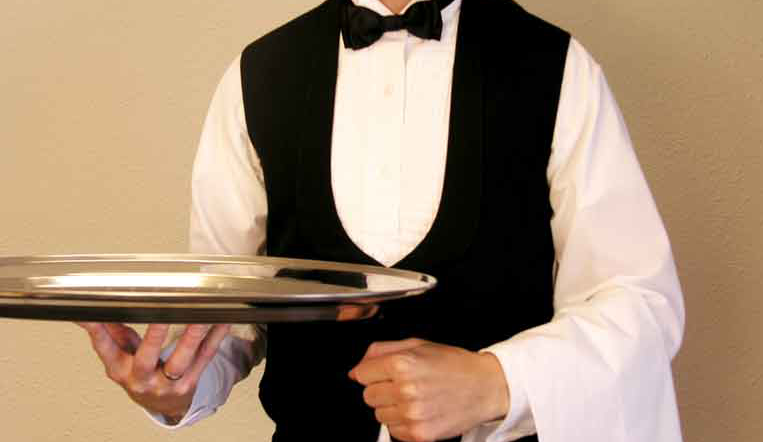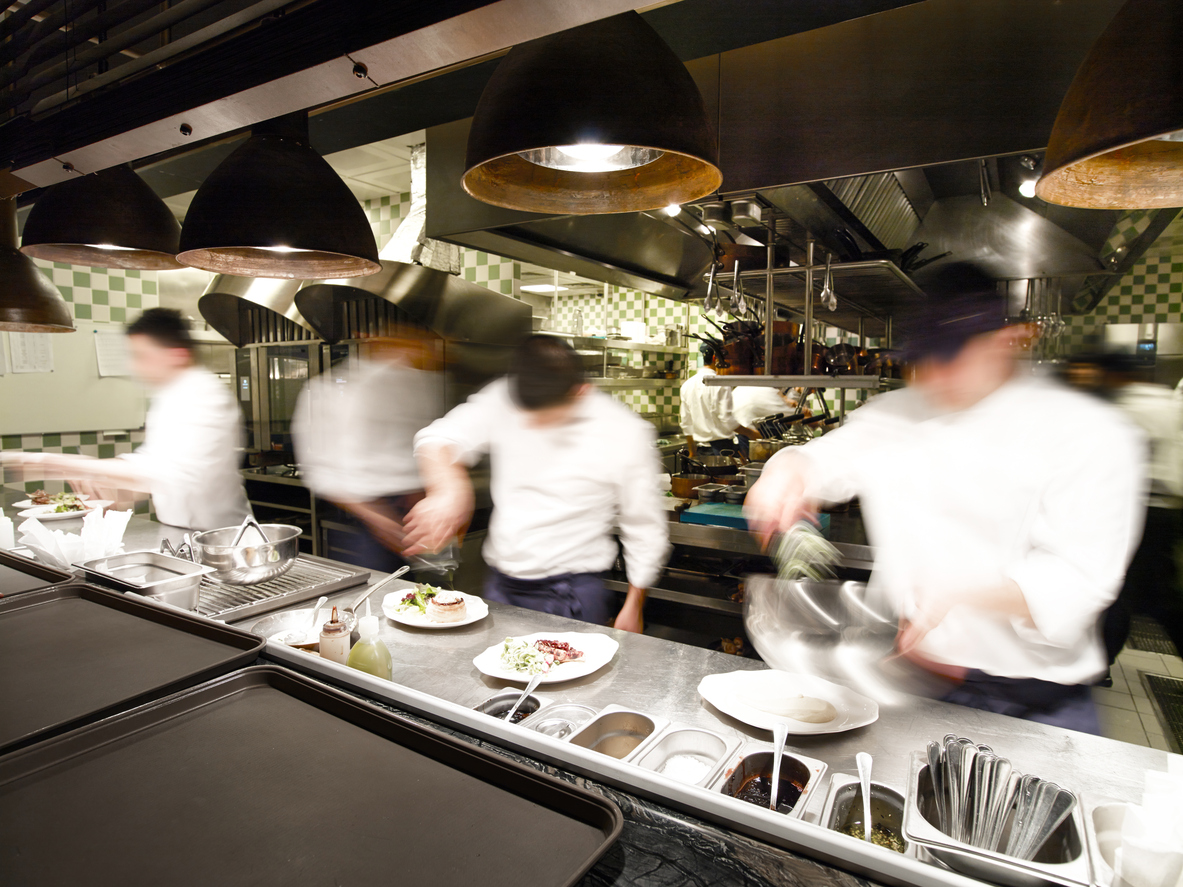When you decide to become a chef, you are then left with a choice of which kind of chef you would to be. If you plan to become someone that is at the top of the kitchen hierarchy then it is most likely you’ll have to work your way up to the top positions. However, what are the different kinds of chefs? And what does each chef title mean?
Category: Hospitality Employment
Looking for hospitality job? Hospitality industry is a great career for those who love variety and thrive off lively atmospheres. It’s never dull with the opportunity to travel to new places and experience different cultures – waking up in the morning has never been easier.
Preparing for A Hospitality Job Interview
It’s safe to say that a congratulations is in order for getting an interview for your desired hospitality role.
Your CV has proven you to be a worthy candidate for the role. All that is left to do is make sure you are prepared for the day of the interview, and we’re helping you out by offering some tips below.
Continue reading “Preparing for A Hospitality Job Interview”
Growing with Hospitality
 Working in the hospitality industry is a brilliant way of allowing room for growth; developing yourself professionally and as a person.
Working in the hospitality industry is a brilliant way of allowing room for growth; developing yourself professionally and as a person.
This is one of the elements that make working in hospitality such an attractive role.
Hospitality roles will allow you improve the professional skills you already possess and with time, patience and commitment you will obtain new sets of skills, absorbing them from the work you do with clients, from your colleagues and the situations you will be put into.
Regarding working in a hotel, a set of characteristics will be desired in order to work in that sector of hospitality. Asked are soft-skills that can range from organisation to communication and working well within a team; to technical skills such as serving, accounting, revenue management and facilities management.
Another important skill to have when working in a hotel is the ability to take care of people. It’s a debatable subject but empathy and commitment will be needed in order to be able to put another person’s needs before your own, all the while giving them the best customer experience possible.
Hotels are visited for a variety of reasons, although what a customer really wants is a great experience. They expect hotel staff to accord their attention, care and their time – and because each person’s needs differ significantly, it can present a challenge.
As businesses are ever-growing and there is a sole focus emerging towards making profit. Hotels, in comparison, have no limit to their products of meals, rooms, drinks or hosting of events, hotel service is extended, which is a way of improving services and improving service-industry skills.
If you’re interested in working in hospitality, please visit the Gateway website!
Duties of different chefs
In the kitchen of a restaurant will a number of chefs each assigned a specific duty that each coincides with the other in hopes to provide a quick service.
Becoming a chef requires ambition, creativity, drive, patience and, most importantly, stamina.
Below are the variety’s of chefs and their experience for the role at hand.
Short-order cooks
These cooks will have a minimal amount of cooking experience or education. One would essentially work in lower level dining or usually in fast-food restaurants.
Station chef
The station chef will usually work under the watchful eye of the sous chef and each of the station chefs will oversee a specific element of the meal. Most kitchens will have the station chef working on that specific section of the overall meal although, in larger operations, a station chef could be assigned assistants and lower chefs that would work under their supervision.
Station cooks could possibly be chefs that are working their way up in the ranks from a lower position or lower skilled jobs.
Types of station chefs positions:
– Sauté chef: responsible for all food items that are sautéed and their sauce which is essentially the highest position of all of the stations
– Fish chef: namely execute their title role, the fish chef will be in charge of the fish dishes and will often to all of the fish butchering and fish sauce assembly.
– Roast chef: in charge of the preparation of braised and roasted meats and their sauce
– Grill chef: prepares all grilled foods (position can be combined with the rotisseur)
– Fry chef: in charge of preparing the fried food items (again can be combined with the position of rotisseur)
– Vegetable chef: has the role of preparing hot appetisers, frequently in charge of the preparation of soups, vegetables, pastas and starches. In a full brigade system, a potager would take out preparing the soups and a legumier would prep the vegetables.
– Roundsman: another name could be swing cook, this position fills in as needed on any station in the kitchen
– Cold-foods chef: can also be called a pantry chef; a cold food chef is responsible for preparing cold foods such as salads, cold appetisers, pates etc.
– Butcher: butches poultry, meats and occasionally fish, can also be in charge of breading meats and fish
– Pastry chef: has the role of preparing pastries, desserts and any other baked goods. The pastry team will frequently supervise a separate team in their own kitchen or separate shop in larger operations. This station can be broken down into specific roles including: confiseur – prepares candies and petit fours, boulanger – prepares unsweetened doughs for breads and rolls, glacier – responsible for preparing cold and frozen desserts, and a decorateur – prepares show pieces and speciality cakes.
Sous chef
The sous chef is essentially the assistant of the executive. They will be the second in command, taking the executive chef’s role when they are off duty.
Sous chef’s are responsible for ensuring the line chef’s are following the orders of the executive chef and are doing their role efficiently.
Small restaurants may not require a sous chef, alternatively larger operations may require a number of sous chefs.
The sous chef preferably working in formal culinary education as a result of their position in the kitchen, they are on their way to become head chef. Start right now by applying for sous chef Peterborough listed on our site.
Executive chef
This role belongs to the highest position in the kitchen. Executive chefs will be found in finer dining establishments and are often referred to as the head chef – they effectively manage and direct the kitchen staff, holding the responsibility of creating the menu, ordering inventory and the plating design.
Each role is crucial in order for the kitchen to function correctly and for the catering experience for diners to run smoothly.
Please visit our website to view the latest vacancies available in hospitality.
10 great reasons why you should work in Hospitality
Why should you work in hospitality?
According to a survey by the British Hospitality Association, over 1.9 million people are said to work in the hospitality industry. Chances are though, that if you’re reading this article that you’re either one of two people; you’re already in the industry, or you’re considering it as a career option. Part of the beauty that working in hospitality gives is the joy you have from the role, but why else should you want to work in hospitality? Below we have compiled a list of eight reasons why hospitality is for you, and though shifts can be long and tiring at times, if you have a passion for the job then hospitality an incredibly rewarding career.
1. You can make someone’s day
Whether you’re a receptionist, a waiter, a bartender or a kitchen porter or any other hospitality job, your role doesn’t really matter in a sense of bringing joy to somebody’s day. Your presence makes their day a whole lot better; they come into your place of work for a host of reasons, whether its food, drink, service, relations or more, your job role is about people. Your job doesn’t revolve around the preparation of spreadsheets; it’s ultimately about the overall happiness of your customers.
2. It ‘opens doors’
Every single country in the world uses the hospitality industry, and it’s one of the world’s most common jobs as people worldwide are waiters and waitresses in their teenage years. The skills learnt in hospitality are easily transferable, with the personal skills that you learn i.e. customer service being needed in every single industry. You’ll constantly meet new people from new cultures, so you can always consider taking your skills abroad.
3. You can take on responsibilities
With the ever growing responsibilities in hospitality, this means you can make your way up the ladder very quickly in the industry. If you work hard and get on with customers and colleagues in a good manner, then very soon, you’ll find yourself in a senior position managing people and projects. You should always show initiative too, as this will always help your chances.
4. It’s a creative industry
Though hospitality is a people-oriented industry, hospitality is also an industry of creativity. You are creating a product and that doesn’t matter if it’s food, drink, a customer experience or more – there’s always a way to make your service more enjoyable for your customers.

5. There’s no need to get stuck
There’s enough of a scope in the hospitality industry for you to gain a level of diversity in your career, therefore you’re not getting stuck in one sector. You don’t even have to move employer, you can simply move from a receptionist to a concierge or waiter. No other industry offers this level of diversity.
6. It’s not a 9-5 job
The mundane thing about most jobs is the 9-5 routine that people learn to hate. Waking up at the same time, with the same breakfast, with the same outfit, then catching the same train into the same office isn’t for everyone. The beauty about hospitality is the amount of variety that it brings to the role, not only in the varied hours of work but also the work you do in those hours as it can change at any second.
7. It’s a safe bet
People will always need their basic human needs; food, drink and somewhere to sleep. So, even in a shaky economic climate like the credit crunch that has hit the UK in the past few years, the hospitality industry is a secure bet for a career.
8. Work can be a lot of fun!
Working in an office will often limit the perks available to you, despite getting a Christmas party with a few drinks, dire music and everyone looking a bit awkward. In the hospitality industry things are much, much different. After all, the function of your job is to be there to help customers have fun, so make sure you share some of that fun with each other.
9. Learn applicable life skills
The industry heavily revolves around food & drink – from purchasing stock & ingredients, to preparing them for service, and cleaning up afterwards. For young people especially, learning to feed, and clean for, others is more than helpful experience as you become more independent.
10. Perks of the job
The vast majority of pubs, restaurants and hotels will offer discounts or freebies, you can use these benefits outside of work or have a much more enjoyable lunchtime compared to your typical meal deal!
For more on hospitality employment, please visit our website.





